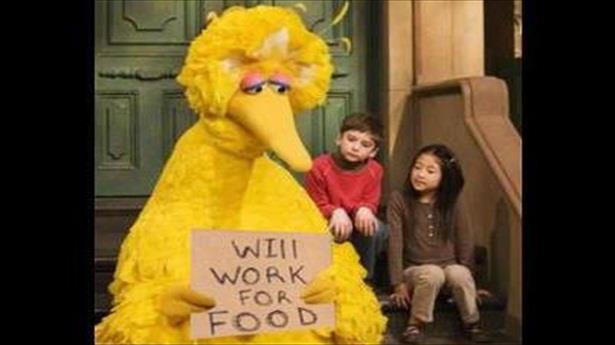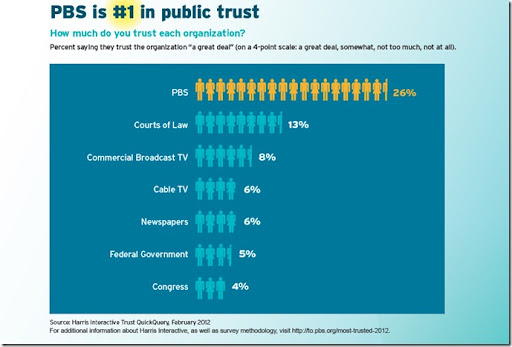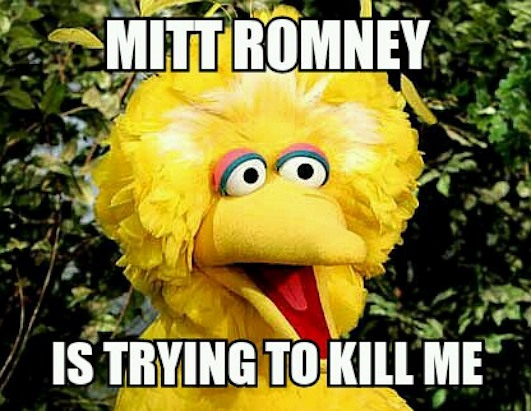
When the first presidential debate aired on October 3, 2012, the country was full of anticipation about how Mitt Romney and Barack Obama would draw undecided voters to their side before the November 6th deadline. In the end, Mitt Romney stunned many Americans with his collective manner, while Obama looked sluggish and unprepared. Even with his cool demeanor and organized statements, Mitt Romney’s most memorable moment during the Denver debate was his reference to Big Bird and PBS.
While Romney was explaining his plan to reduce the nation’s budget deficit, he named a few programs that would lose funding under his administration should he be elected, and the entity which got the biggest response was PBS. Allegedly, Mitt Romney wants to take Big Bird away from millions of toddlers and kids to help shrink the trillions of dollars in debt that may have been accumulated through subsidizing other programs like oil and corn. But this writer digresses; apparently, this revelation angered many viewers and caused an unexpected backlash against the Republican presidential candidate.

After the debate, supporters of PBS and Big Bird went into action and set up the Million Puppet March (MPM). That’s right, puppets unite! On November 3, 2012 puppets of all kinds and their supporters, along with the public broadcasting supporters, will march on the National Mall in Washington, D.C. to keep PBS’s federal funding intact. According to the statement made on the Million Puppet March’s Facebook page, facebook.com/millionpuppetmarch, the organizers believe, “that it is essential to provide adequate federal funding to our public broadcasters.”
And the PBS Effect…
This march is to show government leaders that financial support for PBS should not be eliminated because this television station not only provides a service to those who watch its programs, but also to those PBS employs on a daily basis. The PBS subsidy furnished by the government allows for much needed jobs, especially in an economy where the unemployment rate does not need to go up, and to cut funding would mean to increase the unemployment lines around the country. According to Mitt, he wants to create jobs, not eliminate them.
So now, PBS is marching for the right to funding. But does PBS have the influence to get voters to Washington and convince members of congress not to cut their support? Is Big Bird really going to be effective in helping the PBS agenda? Shouldn’t there be more of an effort on PBS’s part to keep Mitt Romney out of the oval office, instead of stomping on government steps to keep their funding? Or do PBS, and Big Bird, know that there are others like Romney, who want the network’s endowment on the chopping block?
November 3rd is fast approaching and whether the MPM is an effective tool in sustaining PBS’s federal donation, or keeping Romney out of the Presidential seat, will only be seen after November 6th. Until then, one thing is for sure: PBS better watch its back because if Romney wins, he will be like Freddy Krueger with their funding, one, two, Romney’s coming for you.

Leave a Reply